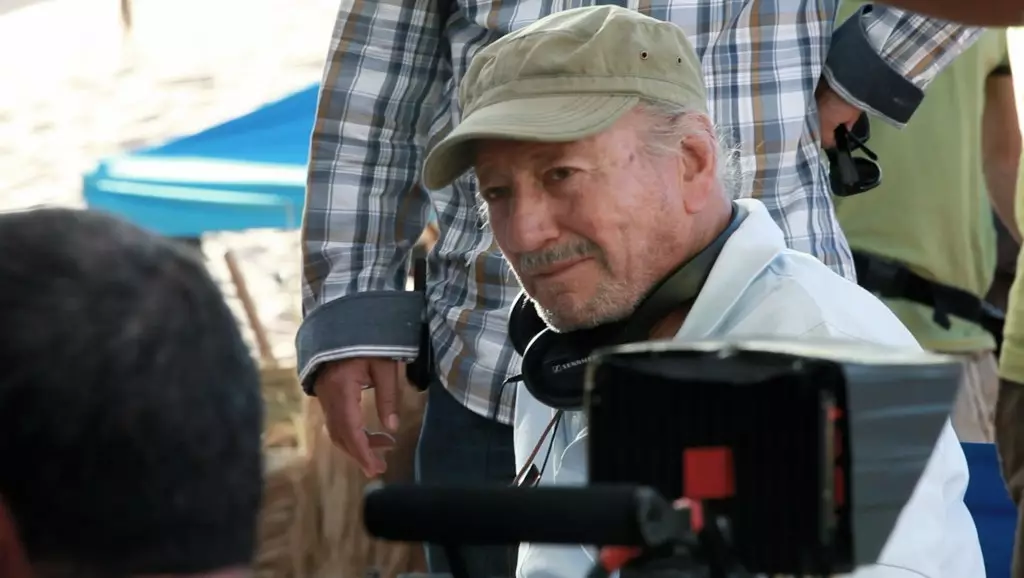The world of cinema lost a monumental figure when Algerian director Mohammed Lakhdar-Hamina passed away at the age of 91. Renowned for his groundbreaking contributions to the film industry, particularly with his celebrated work *Chronicles of the Years of Fire*—the sole African film to ever win the Cannes Palme d’Or—Lakhdar-Hamina’s life was a remarkable journey of resilience, creativity, and cultural representation. His death on May 23 at his home in Algiers marked the end of an era, but his cinematic legacy will undoubtedly continue to inspire future generations of filmmakers, both within Africa and globally.
Born on February 26, 1934, in M’sila, Lahkdar-Hamina was deeply rooted in the agrarian life of northeastern Algeria. Growing up in a farming family could hardly have eclipsed his creative aspirations; his experiences were profoundly shaped by the tumultuous backdrop of the Algerian War of Independence. The emotional weight of personal loss, exemplified by the death of his father at the hands of French colonial forces, ignited a passion within him. This passion fueled his filmmaking ambitions, allowing him to tell stories that resonated with the struggles of the people.
Chronicling a Nation’s Struggle
*Chronicles of the Years of Fire* served not only as an artistic expression but also as a historical document—chronicling the Algerian fight for independence against colonial rule. Utilizing the perspective of a peasant farmer, Lakhdar-Hamina unravelled the complexities of a nation’s yearning for freedom, bringing to the forefront the harsh realities experienced under French colonialism. His ability to present these narratives in a cinematic format birthed a unique voice that was often absent on the international stage during the 1960s to 1980s, a time when diversity in filmmaking was barely acknowledged.
Remarkably, the screening of *Chronicles of the Years of Fire* within the Cannes Classics program coincided with his death, a poetic twist of fate that brought the legend full circle. His son, Malek Lakhdar-Hamina, was present, ensuring that the spirit of his father’s achievements lived on in a moment of familial pride and recognition. It also reinforced the importance of the film in discussions surrounding African cinema, celebrating its historical significance while showcasing advances in restoration technology that breathe new life into such works.
A Journey Through Time and Culture
Lakhdar-Hamina’s contributions extended beyond *Chronicles of the Years of Fire*. He competed for the prestigious Palme d’Or four times, with his works—such as *The Winds of the Aures* and *Sandstorm*—continuously exploring themes of identity, resilience, and social justice. His break from filmmaking was long, spanning three decades before he returned with *Twilight of Shadows*, an emotional tribute to Algeria’s evolving identity that preceded its submission for Best Foreign Language Film at the 88th Academy Awards.
In many ways, Lakhdar-Hamina was a pioneer not just for Algerian cinema, but for African storytelling on a global scale. His experiences during the Algerian resistance led him to a deeper understanding of the medium, and he was instrumental in shaping not only film narratives but also the infrastructure of cinema within Algeria. As head of Algeria’s national news service and later the National Office for Commerce and the Film Industry, Lakhdar-Hamina was on the forefront of promoting and preserving Algerian culture through cinema.
Restoration and Future of African Cinema
The recent 4K restoration of *Chronicles of the Years of Fire* represents a significant commitment to preserving African cinema—a move that resonates deeply within the industry. Undertaken by The Film Foundation’s World Cinema Project and Cineteca di Bologna, the restoration is not just a technological marvel; it emphasizes a cultural Renaissance in rediscovering African narratives that have been historically marginalized. With plans for the film’s theatrical re-release in France, it symbolizes a renewed interest in African cinema that will hopefully inspire a new generation of filmmakers.
Mohammed Lakhdar-Hamina’s demise evokes not just a sense of loss, but also a call to action. The film industry stands at a crucial juncture, where it must learn from the pioneering spirits of filmmakers like Lakhdar-Hamina, who, despite obstacles, chose to tell the untold stories of a marginalized people. The ripple effects of his work are undeniable, laying the groundwork for conversations about cultural representation, identity, and the universal quest for justice and freedom that remain relevant today.
